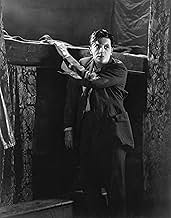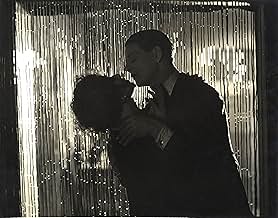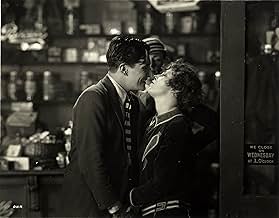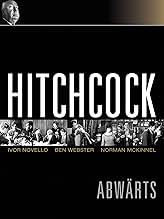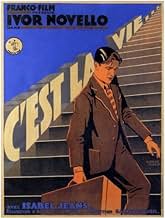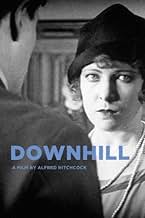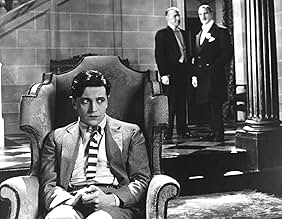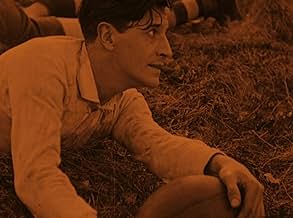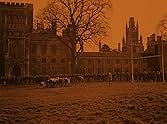IMDb RATING
6.0/10
3.2K
YOUR RATING
Bound by honor, a successful schoolboy takes the blame for his roommate's indiscretion, and it's all downhill from there.Bound by honor, a successful schoolboy takes the blame for his roommate's indiscretion, and it's all downhill from there.Bound by honor, a successful schoolboy takes the blame for his roommate's indiscretion, and it's all downhill from there.
Constance Collier
- Dance Hall Lady with Purse
- (uncredited)
Daisy Jackson
- The Seductive Waitress
- (uncredited)
Storyline
Did you know
- TriviaWhen Sir Alfred Hitchcock looked back on this film, he was quite critical of it and felt that the symbolism he used was a touch too obvious.
- GoofsWhen Roddy and the girl are dancing in the candy shop, a gramophone record of a tune called "I Want Money" is shown. It's on the old "WINNER" label. In a flashback, it's playing again on the record player, but in a further flashback, in a montage, the record has become a "His Master's Voice" disc.
- Quotes
[first title card]
Title Card: Here is a tale of two school-boys who made a pact of loyalty. One of them kept it - at a price.
- ConnectionsFeatured in Shepperton Babylon (2005)
- SoundtracksI Want Some Money
Words by Herbert Rule & Fred Holt.
Music by L. Silberman.
Played on the gramophone machine by Mabel; even though Downhill is a silent film, the accompanying music would have referenced this song as it underscores elements of the plot.
Featured review
Classmates and close friends at an English public school, Roddy Berwick and Tim Wakely compete for the affections of a local shop girl. When the girl falsely accuses Roddy of getting her pregnant, he is expelled. However, Roddy remains silent to protect Tim, who was the guilty party, and the friends make a pact to keep silent. Outraged at his expulsion, Roddy's father does not believe his son's claims of innocence and throws him out. Thus, Roddy strikes out on his own, and his life begins a downward spiral from stage acting to a disastrous marriage to taxi dancing to the Marseilles waterfront. "When Boys Leave," also known as "Downhill," was Alfred Hitchcock's fifth completed film, and, early on in his career, the master director explores his oft-repeated theme of the wrongfully accused.
Shot in 1927, the film is silent with inter-titles, and the black-and-white cinematography is often well lit with striking visual compositions. However, Hitchcock generally holds the camera steady, and movement occurs within the frame. The film lacks the camera fluidity common among movies of the late silent era, although Hitchcock is already a master of visual story-telling, and the inter-titles are brief and sparse. As Roddy's life reels out of control, he is dwarfed by his surroundings in rooms with impossibly high ceilings and doors that are more than twice his height. Fortunately, Hitchcock elicits naturalistic performances from his cast, and none indulges in the grand style of acting that negatively stereotyped silent movies. Ivor Novello, a Welsh matinée idol best known for his musical talents, plays the suffering Roddy quite well. Isabel Jeans as Julia Fotheringale, a spendthrift actress, and Ian Hunter as Archie, Julia's shady lover, provide amusing support during one colorful episode in Roddy's descent.
"When Boys Leave" is from Hitchcock's apprentice period in England, when he was still learning the craft. While the story is thin, and the motivations vague, this short silent film shows flashes of the genius to come, and, for students of the master, every Hitchcock film is worthwhile viewing.
Shot in 1927, the film is silent with inter-titles, and the black-and-white cinematography is often well lit with striking visual compositions. However, Hitchcock generally holds the camera steady, and movement occurs within the frame. The film lacks the camera fluidity common among movies of the late silent era, although Hitchcock is already a master of visual story-telling, and the inter-titles are brief and sparse. As Roddy's life reels out of control, he is dwarfed by his surroundings in rooms with impossibly high ceilings and doors that are more than twice his height. Fortunately, Hitchcock elicits naturalistic performances from his cast, and none indulges in the grand style of acting that negatively stereotyped silent movies. Ivor Novello, a Welsh matinée idol best known for his musical talents, plays the suffering Roddy quite well. Isabel Jeans as Julia Fotheringale, a spendthrift actress, and Ian Hunter as Archie, Julia's shady lover, provide amusing support during one colorful episode in Roddy's descent.
"When Boys Leave" is from Hitchcock's apprentice period in England, when he was still learning the craft. While the story is thin, and the motivations vague, this short silent film shows flashes of the genius to come, and, for students of the master, every Hitchcock film is worthwhile viewing.
Details
Box office
- Gross worldwide
- $158
- Runtime1 hour 50 minutes
- Color
- Sound mix
- Aspect ratio
- 1.33 : 1
Contribute to this page
Suggest an edit or add missing content


